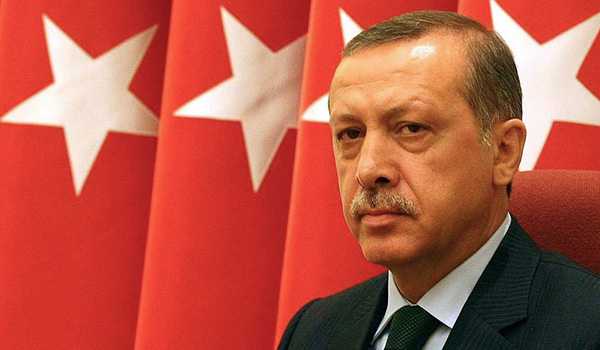Turkey has never been, and will never be, welcome in the EU.

The Kemalists’ rationale for making the armed forces the secular order’s guarantor was not a desire that Turkey be a police state. To the contrary, on the occasions when it has intervened, the Turkish military has hastened to return power to civilian authorities. Indeed, even the New York Times — which, flush with the Spring Fever, hallucinates elections into democracy, and peremptorily presumes that a military government simply must be more repressive than an elected Islamist government — concedes that the army’s 1980 coup was a boon for freer government. The generals were keen to withdraw rapidly from politics and imposed a constitution that, while maintaining the military’s guardianship role, enabled the rough-and-tumble of partisan politics and “allowed civilian institutions to bloom.”
The Turkish military was given a role as the ultimate constitutional check for the same reason that, whether we choose to acknowledge it or not, Western governments maintain the capacity to impose martial law (albeit under civilian direction) in dire circumstances. There are times when existential threats to the governing system can only be defeated by military means. The War of 1812 and the American Civil War, during both of which martial law was imposed, spring to mind. So does the bloody history of Europe. As Justice Oliver Wendell Holmes Jr. wrote for a unanimous Supreme Court in the 1909 case of Moyer v. Peabody, “When it comes to a decision by the head of the State upon a matter involving its life, the ordinary rights of individuals must yield to what he deems the necessities of the moment. Public danger warrants the substitution of executive process for judicial process.”
The difference between the governments of Turkey and the United States is that the former is trying to cultivate freedom in an Islamic setting, not merely preserve freedom in a preexisting culture of liberty. In a mainstream Islamic society, the threat of reversion to a freedom-devouring sharia system always looms. Kemalist Muslims wanted a flourishing civil society. They realized they could not keep one unless Islam’s supremacist proclivities were permanently checked. Though their efforts were very far from perfect, they were trying to forge and fortify a prosperous, Western-style nation-state. Contrary to a sharia system, the Kemalists never sought to strangle freedom of conscience. There was never any prohibition on being a Muslim, believing in Islam, or privately adhering to Islam’s spiritual elements. It was Islam’s extra-spiritual aspects (political, social, economic, military, etc.) that were the issue. Without the military as a bulwark against Islamic supremacism, freedom of conscience and liberty in general would be doomed.
This is common sense. It is easily verifiable. Still, Europe will have none of it. It discomfits the conceit that, Islam or no Islam, history marches inexorably toward universal adoption of the Continent’s humanist societal model. If the matter were not so serious, it might be tempting to laugh off Europe’s hypocrisy: Turkey is not welcome in the EU precisely because European elites are well aware that Islamic culture is different from Western culture. And, as for Europe’s end-of-history pretensions, it is far more likely that France and Germany will be conclusively dhimmified than that Turkey will be conclusively Westernized.
All that said, though, the Europeans continue to make believe Turkey will someday be invited to a place at the adults’ table if it just addresses a few outdated flaws. Thus Erdogan continues to leverage this European pressure for Turkish reform because it serves the Islamist cause of weakening the Turkish military and, under the ironic guise of “religious liberty,” breaking Ataturk’s shackles on supremacist Islam.
— Andrew C. McCarthy is a senior fellow at the National Review Institute. He is the author, most recently, of Spring Fever: The Illusion of Islamic Democracy, from which this article is adapted.
